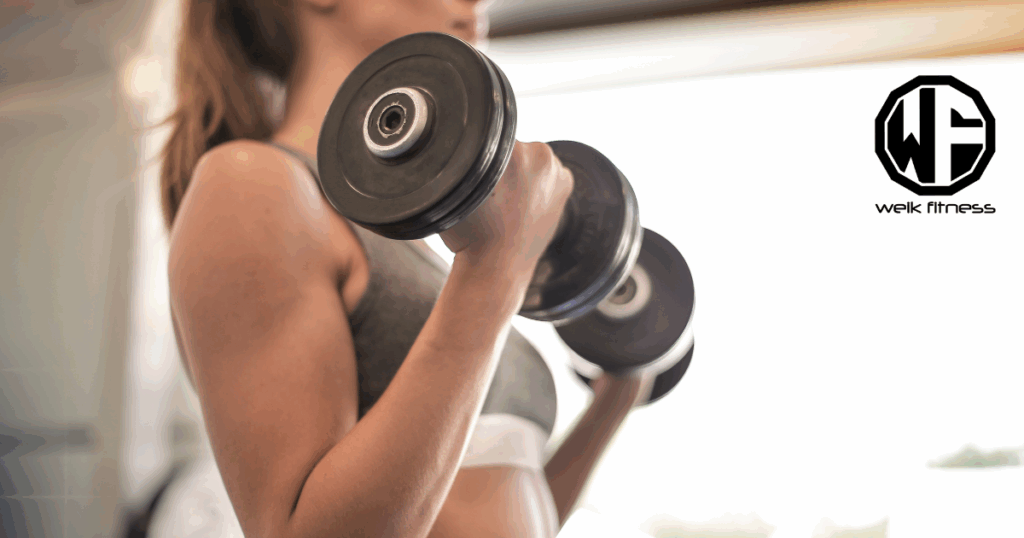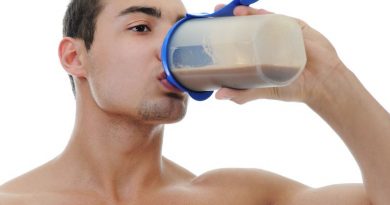Creatine for Women: Should Women Take Creatine Supplements?
For years, there have been mumblings online from internet trolls and haters who love to push the notion that creatine for women is a bad thing.
Even more concerning is the fact that many of these “internet experts” think that creatine supplements (in general) aren’t good for you.
Well, they couldn’t be any further from the truth.
Studies have looked at creatine for well over a decade, and it’s the most highly researched supplement available on the market today, and for good reason — IT WORKS.
Creatine for women offers a clear approach to support your workout goals.
Women usually possess 70-80% lower endogenous creatine stores than men. This fact shows the need for creatine supplementation.
In this article, we will dive deeper into how a creatine supplement, like creatine monohydrate, can support muscle performance, bone health, and even brain function.
Disclaimer: This article is for informational purposes only and is not meant to treat or diagnose any condition. It is recommended that you speak with your doctor before starting any exercise program, changing your daily nutrition, or adding any supplements to your regimen.
Table of contents
- Key Takeaways
- What is Creatine?
- Benefits of Creatine for Women
- Creatine Across Different Life Stages
- Creatine and Physical Performance
- Creatine and Cognitive Health
- Common Myths About Creatine for Women
- Safety and Side Effects of Creatine for Women
- How to Take Creatine for Women Effectively
- Choosing the Right Creatine Supplement
- Who Should Avoid Creatine?
- Grab Yourself Some Creatine Monohydrate and Enjoy the Benefits!
- Creatine for Women FAQs
- Creatine for Women Supplementation References
Key Takeaways
- Women naturally have 70-80% lower creatine stores than men, so supplementing with creatine can help boost muscle strength, recovery, and overall energy.
- Studies show that creatine increases muscle strength by 20-25% in leg exercises and helps female athletes gain an 18% boost in bench presses and a 24% increase in squats.
- Creatine benefits bone health, cognitive function, and mood, with dosing plans that start with a loading phase of 20 grams per day for 5-7 days, followed by a 3-5 gram daily maintenance dose.
- Creatine is available in various forms, including creatine monohydrate, creatine CEE, creatine HCl, and others.

What is Creatine?
Creatine is a proven supplement that boosts muscle performance and energy. Women can take oral creatine monohydrate to build strength and speed recovery.
What is creatine as a supplement?
Many people use a creatine supplement to boost energy in muscle cells and support muscle performance. Women often have lower natural creatine stores compared to men, so supplementing with creatine helps fill that gap.
A well-studied form, oral creatine monohydrate, offers benefits for muscle mass, increased strength, and brain health through creatine supplementation. A daily dose of three to five grams works well for many active women.
RELATED: What Happens If You Miss Taking Your Daily Creatine Dose?
Overall, creatine for women can help enhance muscle growth and may improve exercise endurance, recovery, and cognitive function.
What types of creatine supplements are available?
Creatine is a popular dietary supplement for strength, muscle performance, and brain health.
- Creatine monohydrate is the most studied form and offers proven benefits of creatine for women. It boosts muscle mass and strength, and shows evidence of easing recovery.
- Magnesium Creatine Chelate supports creatine levels by utilizing magnesium. It offers an alternative to traditional creatine monohydrate and may enhance muscle performance, although research is limited.
- Creatine Nitrate improves workout energy with lower effective doses. It helps increase strength during resistance training and shows promise in supporting exercise endurance.
I also have full articles on various types of creatine listed below if you want to dive deeper into specifics:
I always recommend that people start with creatine monohydrate, whether in pill or powder form, before trying any other creatine variation. That said, I’m not a fan of creatine gummies. I have nothing against the brands that make them, but I don’t feel they are as effective as the powdered form.
I recommend a pure 100% creatine for women.
Benefits of Creatine for Women
Creatine for women can help boost muscle strength and speed recovery by using easily accessible products like creatine monohydrate supplements. You can even support bone health and sharpen focus as you train with proven creatine powders.
How does creatine improve strength and muscle performance?
Creatine fuels your muscles fast. It boosts creatine phosphate levels and fuels quick energy. Your strength increases with creatine supplementation. Post-training assessments reveal a 20-25% greater increase in one-repetition maximum for the leg press, leg extension, and squat exercises.
Brenner et al. found a clear effect of creatine. Collegiate female lacrosse players experienced an 18% increase in bench press and a 24% increase in squat. You can power your workouts with a regimen of 15 g per day for 5 days, followed by 5 g per day for 12 weeks. This is called a loading phase (sometimes people take upwards of 20 g per day for a week).
Research has found that you really don’t need to do a loading phase if you don’t want to. Some people experience stomach issues during the loading phase. If you simply take a 5 g per day dose, you can fully saturate your muscles in around 30 days.
Can creatine enhance exercise endurance and recovery?
A five-day creatine loading method boosts exercise endurance and aids recovery. Short-term creatine supplementation at 0.5 g/kg fat-free mass enhances lower extremity power and reduces the time to peak torque.
A study by Eckerson et al, which used 20 g/day over five days, increased anaerobic working capacity by 22%. This research suggests that creatine supplementation may offer positive effects of creatine usage on muscular performance and recovery.
You may see stronger resistance training benefits and enhanced energy during workouts. Creatine for women may also help you experience improvements in exercise endurance, cognitive function, and overall physical performance.
How does creatine support bone and muscle health?
Your training can shift from improving endurance to building strong bones and muscles when you use creatine supplements. Creatine enhances tissue strength and helps prevent muscle breakdown. You can take creatine to support recovery and muscle growth.
That all being said, resistance training and dietary creatine work hand in hand.
Chilibeck et al. found that a dose of 0.1 g per kilogram per day for 1 year reduced hip bone density loss and increased upper-body strength in post-menopausal women. You can use any form of creatine to increase muscle and bone health. Personally, I would always recommend starting with creatine monohydrate as it’s the most researched and the least expensive form.
What are the cognitive benefits of creatine for women?
Creatine boosts cognitive performance and sharpens focus. It elevates attention and enhances memory in women who are sleep-deprived or stressed. The supplement supports brain creatine stores and improves cognitive health.
A study by Vandenberghe et al. found a 6% increase in muscle PCr after creatine loading, with rises of 7% and 10% after five and ten weeks of training, respectively. These figures support the effect of creatine supplementation and demonstrate its potential to maintain high mental energy levels.
Studies show that a proper daily dose of creatine can help reduce mental fatigue. Women athletes experience improved mood and better problem-solving skills when leveraging creatine for women. The supplement helps sustain clear thinking during workouts and everyday tasks.
Can creatine help with mood stabilization?
You may find that this supplement supports mood stabilization. Research on creatine shows that a dose of 4 to 5 g per day for 8 weeks helps reduce depressive symptoms in women on antidepressants.
Depression rates double in women compared to men because hormonal changes occur during puberty, postpartum, and menopause. Studies have shown that higher levels of creatine in the brain contribute to an improved mood.
Evidence suggests that creatine supplementation for women may improve muscular performance and enhance cognitive function as well.
Women with major depressive disorder often experience benefits from taking creatine supplements. You may gain strength, energy, and a more stable mood with a proper routine.
Creatine Across Different Life Stages

You can use creatine to boost muscle strength and support bone health during every stage of your life, whether you are pre-menopausal, pregnant, or post-menopausal. Many women use creatine monohydrate supplements to enhance their workouts and daily routines.
Personally, I have found that every female client I train and work with benefits from using creatine monohydrate with great success.
Considerations for pre-menopausal women
Pre-menopausal women can increase their strength by using creatine supplements in conjunction with resistance training. Serum creatine kinase levels rise during menstruation and drop with age and pregnancy.
Athletes see a massive improvement in muscle mass and performance with creatine supplementation in females.
Women can use creatine daily to support exercise recovery and bone health in older women. Creatine use has also been shown to have positive effects on mood and cognitive health.
The efficacy of creatine supplementation shows clear benefits for women in various training settings.
Is creatine safe during pregnancy?
Creatine supplementation during pregnancy may lower the risks of low birth weight and pre-term birth. Animal studies show a positive effect of creatine use during pregnancy. A safety study now investigates creatine use in human pregnancy, and past studies on non-pregnant women report no serious adverse events.
You should consult a healthcare provider before taking creatine supplements, as they help manage dietary creatine intake safely while embracing an active lifestyle.
Working out while pregnant can be beneficial. I have an article where I showcase workouts for pregnant women, if you want to check it out.
How does creatine benefit post-menopausal women?
Switching focus from considerations for pregnancy, let’s look at the benefits for post-menopausal women. High-dose creatine, administered at 0.3 g per kilogram per day, enhances skeletal muscle size and function.
RELATED: What Are the Benefits of Creatine and Should You Take It?
Short-term use increases fat-free mass and strength. Creatine for women offers some clear benefits that support bone and muscle health.
Creatine and Physical Performance

Creatine for women helps fuel energy and power muscle contractions. You can choose between creatine monohydrate and micronized creatine to enhance your resistance training.
How does creatine increase energy during workouts?
Creatine boosts ATP production, your muscles’ main energy source. This fact drives the effect of creatine monohydrate, which sharpens energy output during your workouts.
Nelson et al. found creatine loading (20 g/day for 7 days) reduced submaximal VO2 and heart rate while increasing total test time by 1.2 minutes. The supplement shows positive effects of creatine supplementation on resistance training and muscle strength.
Creatine supports energy production, improves endurance, and speeds up recovery, while lightening the load on your muscles. Creatine supplementation can help boost muscle strength and enhance your training performance.
Why is creatine helpful for resistance training?
Resistance training can be improved through the use of creatine supplements. You fuel your muscles and boost your energy during workouts with a 3-5 gram daily dose. You can also gain more strength using creatine monohydrate.
Creatine for women can help with your resistance training. You can experience a boost in exercise endurance and recovery by supporting muscle energy.
Creatine and Cognitive Health

You can use creatine supplements to boost your focus and sharpen your memory. Try creatine monohydrate to support better sleep and mental performance.
Can creatine improve memory and focus?
Creatine boosts your memory and focus by supporting cognitive tasks. Research has shown that higher resting levels, as demonstrated by Ferrier et al. (2000), enhance recognition memory. Female athletes benefit from creatine supplementation, as it improves mental clarity.
You can follow a loading dose of 20 g per day, administered as 5 g every 4 hours for 5 days, followed by a 5-g daily maintenance dose.
When you supplement with creatine, you can optimize training, boost mood stabilization, and improve cognitive performance.
A high dose of creatine may improve focus during workouts and aid muscle and bone health. This data supports the effects of creatine supplementation and benefits for women’s health across the lifespan.
Does creatine benefit sleep regulation?
Linking improved memory and focus to sleep regulation brings new insight. You can gain better sleep patterns with creatine supplementation in women’s health. The supplement may offer benefits during sleep deprivation by supporting brain uptake and mood regulation.
Studies show that creatine can aid you in managing metabolic stress.
Transitioning from brain health to rest, women consume this studied form of creatine to support balanced sleep cycles. The recommended protocol suggests using 20 grams per day for 7 days, followed by 3 to 5 grams daily.
You may enjoy improved sleep regulation and holistic well-being with this approach.
Common Myths About Creatine for Women

Many women think creatine will make them bulky. This isn’t true. We often hear myths online from people who have been misled by false information over the years.
Let’s dive deeper into some of the common myths you may hear regarding creatine for women.
Will creatine make women bulky?
Creatine enhances strength and accelerates recovery during your workouts. The supplement aids muscle definition without causing unwanted bulk. You can experience improvements in lean muscle mass and total performance when using creatine supplements.
Creatine in females offers benefits through proper supplementation, with no significant weight gain.
Remember, women do not have high testosterone levels like men. Therefore, it’s more difficult for women to put on muscle.
You gain better bone and muscle health with the right amounts of dietary creatine. The physiological effects of creatine supplementation on bone and muscle support women’s health while improving mood and cognitive focus.
What are the misconceptions about weight gain and creatine?
You see myths claim that this supplement makes you bulky and causes general water retention. Myths say your body holds extra water and that weight gain will occur. Research shows the product draws water only into muscle cells and does not support such ideas.
Some spread false claims that it leads to hair loss. Studies state these ideas lack evidence. You can gain health benefits for women and improve your mood by using creatine correctly, and the impact of creatine supplementation may also enhance muscle performance and overall health.
Safety and Side Effects of Creatine for Women

Creatine has been found to be safe for most people to use. If you have a health issue (such as kidney issues) or are pregnant, it’s always best to check with a healthcare professional before using creatine.
That said, creatine for women has been deemed safe and effective.
What are the known side effects of creatine for women?
Creatine may cause mild side effects, such as weight gain, nausea, and diarrhea. Dividing your dose can reduce these symptoms. Healthy women rarely experience kidney issues from creatine, as noted by national institutes of health studies.
You may benefit from taking creatine supplements when you follow the recommended dosing.
Speak with a healthcare provider if you have any concerns about the dosage or side effects.
What is the recommended creatine dosage for women?
You can take up to 20 grams daily for 7 days, then take 3 to 5 grams each day to maintain strength and performance.
How to Take Creatine for Women Effectively

Honestly, it doesn’t really matter when you take your creatine dose, so long as you are consistent with taking it daily. Taking it at the same time each day can simplify things (such as taking it pre- or post-workout).
What are the best dosing strategies for creatine for women?
A typical loading phase involves taking 20 grams per day for 7 days. Split your dose into four or five servings each day. Follow this with a maintenance dose of 3 to 5 grams daily.
This plan works well for women athletes who want to improve their workout energy and achieve faster recovery.
The technique shows clear implications for creatine supplementation and offers guidance on whether creatine can help improve mood. Many women may benefit from creatine supplementation and experience improved health and fitness.
When and how often should women take creatine?
Take up a daily routine with 3-5 grams of creatine. The supplement may help improve mood and overall well-being. Women athletes see better muscle performance with a proper routine.
Adopt a four-week plan to allow the creatine to work well. Continue the dosage each day to support energy during workouts.
This practice brings lasting muscle growth and improved recovery.
Choosing the Right Creatine Supplement

You can pick from many creatine options on the market, like creatine monohydrate or micronized creatine supplements. You should compare details and reviews to find the product that fuels your performance.
What types of creatine supplements exist (monohydrate, micronized, etc.)?
Creatine supplements come in different types. They may improve your mood and have implications for improving health.
- Creatine Monohydrate is the most studied and common form. It boosts muscle growth and supports overall strength.
- Creatine Hydrochloride (HCL) offers better solubility and requires smaller doses. This form blends easily and adds versatility to your fitness plan.
- Creatine Micronized dissolves well in water and aids absorption. It works well for daily use and fits neatly into an active lifestyle.
What factors should women consider when buying creatine?
When shopping for creatine supplements, you need clear criteria. The product helps you boost energy, strength, metabolism, and mental clarity.
- Check for third-party certifications to ensure quality and accurate contents.
- Review product labels for correct dosage and supplement form.
- Examine product details, such as flavor, to suit your taste.
- Assess ingredients to guarantee they meet vegan dietary needs and offer reliable benefits.
- Evaluate the brand reputation and best-sellers rank.
- Inspect the dosage and serving recommendations to support strength training and energy recovery during workouts.
- Consider the added benefits, such as the potential mood-boosting effects of creatine, for a well-rounded supplement choice.
Who Should Avoid Creatine?

You should avoid creatine if you have kidney trouble or liver issues. You should consult your doctor before using creatine supplements, such as creatine monohydrate.
Which medical conditions or concerns mean avoiding creatine?
Women with kidney disease or renal dysfunction should avoid creatine supplements. Your condition may worsen when you add creatine to your regimen. Ask your doctor if you have any related health concerns.
Some concerns call for extra caution. Research shows that long-term creatine use still needs closer study in specific groups.
Why is consulting a healthcare provider important before taking creatine?
Consult your healthcare provider before using a creatine supplement. This step helps you sidestep potential side effects. A doctor can review your health to determine if creatine is suitable for your needs.
Speak with a professional if you have specific health concerns or conditions. A healthcare provider can also guide you on proper dosage, ensuring safe use.
Grab Yourself Some Creatine Monohydrate and Enjoy the Benefits!
With numerous benefits, creatine for women is a no-brainer. From everyday health benefits to performance enhancements and the fact that it’s safe for most people to use, I recommend that everyone consider using creatine.
If you’re looking for some good brands to consider, I have a list of companies and products I trust and recommend to clients:
- Naked Nutrition Creatine (this is what I use daily)
- Nutricost Creatine Monohydrate
- Bulk Supplements Creatine Monohydrate
- Optimum Nutrition Micronized Creatine
- Muscle Feast Creapure Creatine
Creatine for Women FAQs
Creatine for women can enhance exercise performance, aid in building strength, and promote faster recovery. Research shows that proper use of creatine supplements may support energy use during workouts.
Studies show that creatine supplements are safe when taken in proper amounts. Women who follow expert guidelines usually experience benefits without any health issues.
Women mix their creatine supplements with water or a small snack after exercise to help their bodies utilize it more effectively. Experts suggest following dosage guidelines to get the best results.
Data suggests that creatine boosts muscle strength, speeds up recovery, and may improve overall performance. This evidence helps clear up myths about creatine use in women.
Creatine for Women Supplementation References
- https://www.womenshealthmag.com/fitness/a44716483/creatine-for-women/
- https://www.health.com/types-of-creatine-8724832
- https://pmc.ncbi.nlm.nih.gov/articles/PMC6093191/
- https://www.joinmidi.com/post/creatine-for-women
- https://pmc.ncbi.nlm.nih.gov/articles/PMC7998865/
- https://hudson.org.au/news/creatine-and-pregnancy-what-you-need-to-know/
- https://www.tandfonline.com/doi/full/10.1080/15502783.2025.2502094
- https://my.clevelandclinic.org/health/treatments/17674-creatine
- https://pmc.ncbi.nlm.nih.gov/articles/PMC10721691/
- https://perelelhealth.com/blogs/news/creatine-for-women
- https://www.webmd.com/vitamins/ai/ingredientmono-873/creatine
- https://www.mayoclinic.org/drugs-supplements-creatine/art-20347591
- https://www.healthline.com/nutrition/creatine-loading-phase
- https://www.health.com/should-women-take-creatine-11718148
- https://www.womenshealthmag.com/health/a64826695/types-of-creatine/
- https://pmc.ncbi.nlm.nih.gov/articles/PMC7871530/


*Disclosure: This article may contain affiliate links or ads, which means we earn a small commission at no extra cost to you if you make a purchase through these links. These commissions help support the operation and maintenance of our website, allowing us to continue producing free valuable content. Your support is genuinely appreciated, whether you choose to use our links or not. Thank you for being a part of our community and enjoying our content.
PLEASE CONSIDER SHARING THIS ON YOUR SOCIAL MEDIA TO HELP OTHERS LEARN MORE ABOUT THIS TOPIC.





